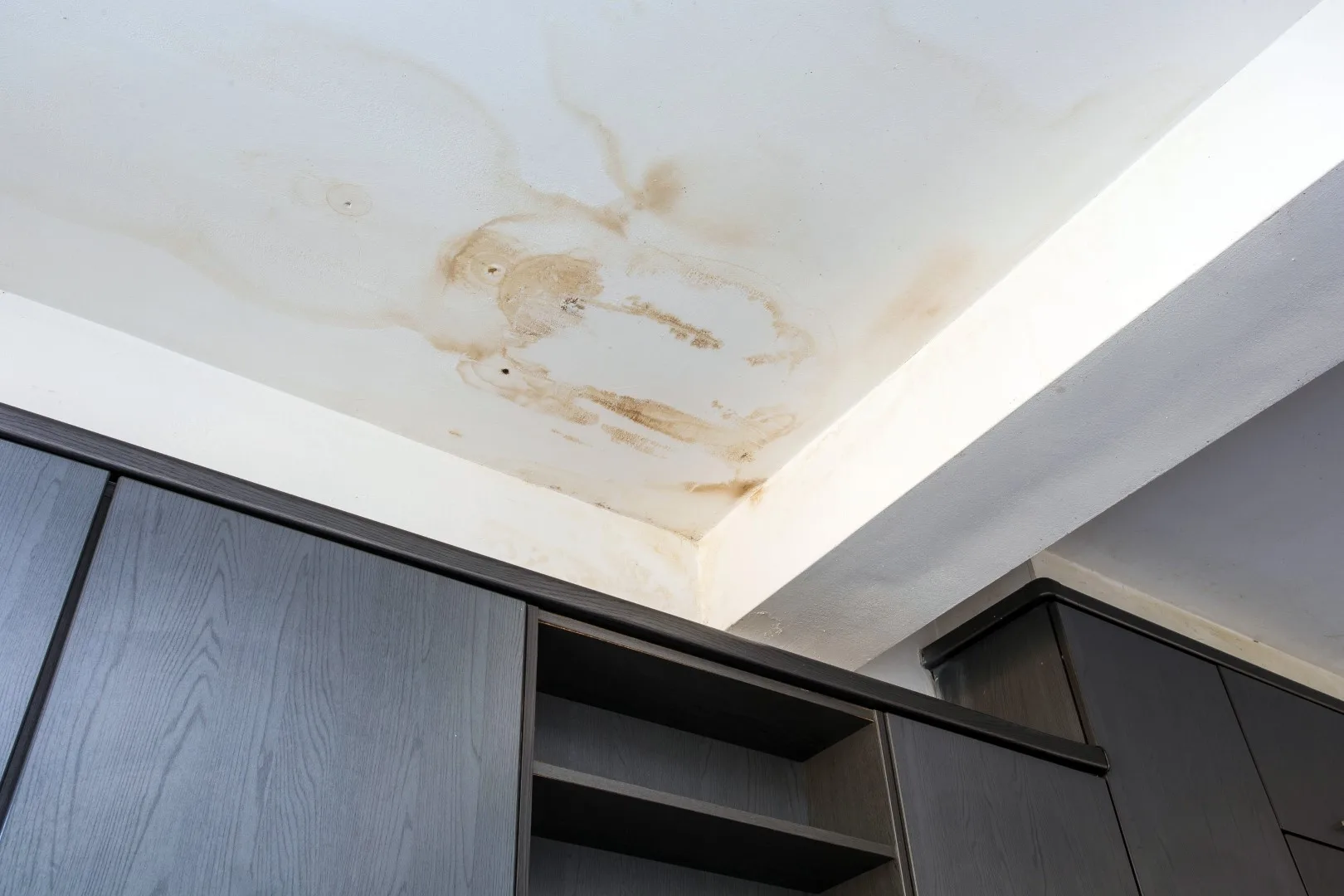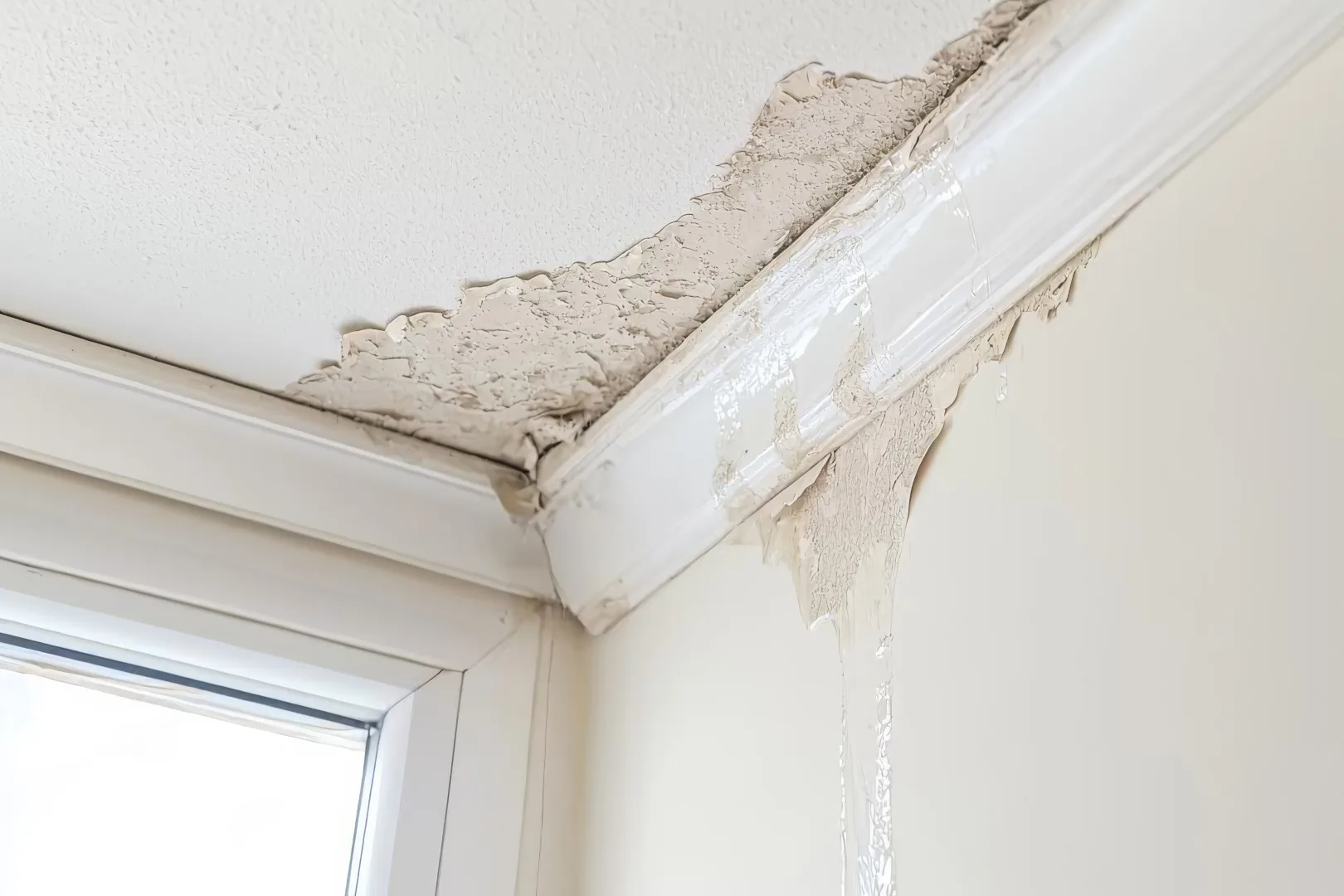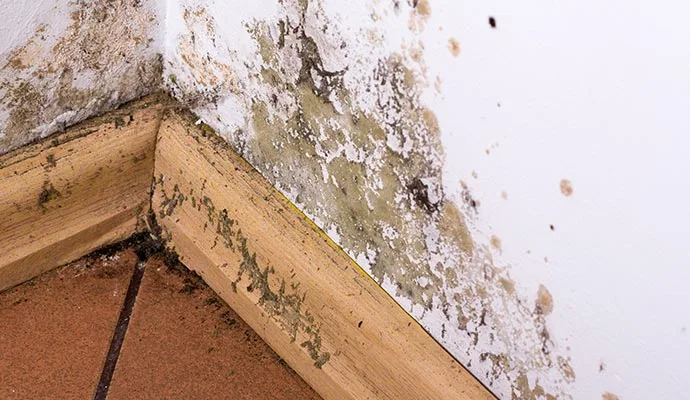
Water damage doesn’t always happen suddenly and obviously, like a burst pipe or flooded basement. It often occurs slowly, hiding behind walls, under floors, or in the attic, causing costly structural damage and putting you and your family’s health at risk before you even realize you have a big problem. Fortunately, there are a few signs that indicate a leak or other hidden water damage. Knowing what to look for will help you catch issues early and prevent bigger headaches down the road.
1. Unexplained Musty Odors
A persistent, damp smell is often one of the first indicators of hidden water damage. A moist environment creates the perfect breeding ground for mold and mildew to thrive. If you smell a musty odor, you could have water lurking behind walls or beneath flooring — and a potential mold problem.
2. Discoloration or Stains on Walls and Ceilings
Brown, yellow, or copper-colored stains often signal leaking water, especially if around plumbing fixtures, windows, or near where pipes run through your walls. Even small, inconspicuous spots can point to a leak in plumbing, roofing, or HVAC systems. Over time, these areas may darken or grow larger, signaling an ongoing issue.
3. Peeling Paint or Bubbling Wallpaper
Moisture can cause paint to lose its adhesion and wallpaper to bubble or peel. This typically means water is saturating the wall from behind, often from a slow plumbing leak or roof damage. Drywall may also bubble up or become soft and soggy if there is significant water absorption, eventually warping and breaking apart. Wet drywall requires immediate attention to prevent further structural damage.
4. Warped or Buckling Floors
Hardwood floors that start cupping, vinyl that begins lifting, or tiles that feel loose could indicate hidden water damage beneath your floors. Prolonged exposure to moisture can weaken subflooring, crack your home’s foundation, and compromise its structural integrity.

5. Sudden Spike in Water Bills
If your water usage hasn’t changed but your bill has gone up, it could be a sign of a hidden leak in your plumbing system. If you receive an oddly high bill, start exploring your house for hidden water damage.
6. Mold Growth in Unusual Places
Mold shouldn’t grow on baseboards, walls, or ceilings. If you notice any mold, even small patches, on these surfaces, you may have a larger hidden problem. Mold should be taken seriously as it can harm your health and deteriorate your home’s building materials.
7. A Constantly Running Water Meter
Your home’s water meter should only run and measure water usage when you or an appliance actively uses water inside the house. The meter should remain constant when everything is off and no one is using water. If you check your meter and the reading is increasing even though every water outlet is off, you could have an undetected leak somewhere.
8. Reduced Water Pressure
When you have a leak or two in your plumbing system, you’ll have less water making its way to your sinks, showers, and other appliances, resulting in reduced water pressure. If you turn on your sink and you get a trickle instead of a strong flow, you could have a hidden water damage in your pipes.
What to Do if You Suspect Hidden Water Damage
- Turn off the main water supply to your house to prevent further leakage. Identify the source of the leak, if possible, and address it. You may need to call a professional plumber to locate and address the source.
- Use fans, dehumidifiers, and towels to dry the affected areas. Ensure the area is completely dry and cut away soggy drywall, insulation, and damaged wood to prevent mold and mildew. You may need a plumber to make a repair and a water damage restoration company for extensive damage or mold remediation.
- Make sure you document the damage for insurance purposes and notify your insurance company about the damage in order to file a claim.
- To minimize water damage, use a moisture meter to detect hidden water damage and inspect your home regularly, especially after heavy rains or plumbing issues.

Don’t Let Hidden Leaks Sneak Up on You
Hidden water damage may start small, but it can quickly turn into a serious problem, affecting the structural integrity of your home, indoor air quality, and your family’s health. By recognizing the early warning signs, such as musty odors, warped floors, or peeling paint, you can take action before the damage spreads. If you suspect water damage, call a professional to identify the source and restore your home properly.
